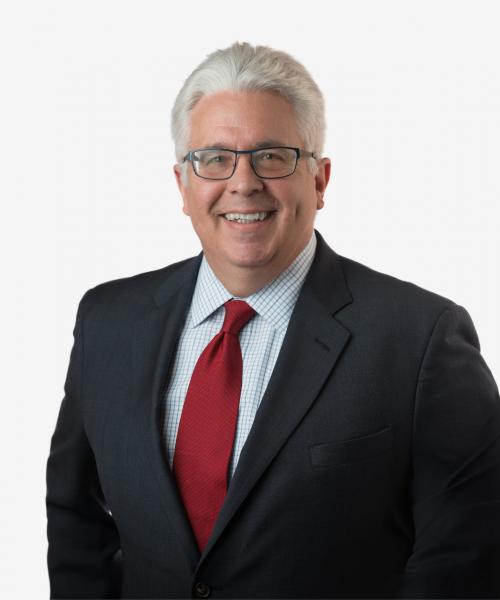Back to the Future: NLRB Restores More Limited Definition of Protected Concerted Activity
Trevor Greenidge, a skycap at Kennedy International Airport, was discharged for griping about not being tipped by a soccer team. The Regional Director issued a complaint alleging that Greenidge had been discharged for engaging in protected concerted activity in violation of Section 8(a)(1) of the National Labor Relations Act (the NLRA or Act). The judge dismissed the complaint. The General Counsel excepted to the dismissal, contending, among other things, that because Greenidge spoke in the presence of other skycaps and a supervisor and included the word “we” in his statement, a finding that the statement qualifies as concerted activity is compelled by the Board’s previous decisions in Whittaker Corp., 289 NLRB 933 (1988); Caval Tool Division, Chromalloy Gas Turbine Corp., 331 NLRB 858 (2000), enfd. 262 F.3d 184 (2d Cir. 2001); and WorldMark by Wyndham, 356 NLRB 765 (2011).
According to the majority, “[t]he right to engage in protected concerted activity is one of the most fundamental rights guaranteed by Section 7 of the NLRA. The importance of this right requires us to ensure that the standard for determining whether a particular action qualifies as ‘concerted’ enables the Board to preserve the distinction between group and individual complaints.” The Board reasoned that the applicable standard “should not sanction an all-but-meaningless inquiry in which concertedness hinges on whether a speaker uses the first-person plural pronoun in the presence of fellow employees and a supervisor.”
In addition, the Board opined that “the protection afforded by the Act to engage in protected concerted activity requires a clear standard that can be relied upon by employees who seek to engage in such activity and by employers who must determine whether particular employee conduct is within or outside the protection of the Act.”
The majority noted that the Board articulated such a standard more than three decades ago in the Meyers Industries cases. Even though the Meyers decisions have never been overruled, the majority ruled that “subsequent decisions—including, as relevant here, WorldMark by Wyndham — have deviated from Meyers and blurred the distinction between protected group action and unprotected individual action.”
Although the majority believed WorldMark by Wyndham is distinguishable, they concluded that WorldMark cannot be reconciled with Meyers Industries and must be overruled. They also found that even if Greenidge’s remark was concerted activity, it was not protected concerted activity “because it did not have mutual aid or protection as its purpose.” Accordingly, the majority adopted the judge’s recommended Order and dismissed the complaint.
As to concertedness, the Board reasoned that “[t]he fact that a statement is made at a meeting, in a group setting or with other employees present will not automatically make the statement concerted activity.” Rather, to be concerted activity, “an individual employee’s statement to a supervisor or manager must either bring a truly group complaint regarding a workplace issue to management’s attention, or the totality of the circumstances must support a reasonable inference that in making the statement, the employee was seeking to initiate, induce or prepare for group action.” Relevant factors that would tend to support drawing such an inference include that (1) the statement was made in an employee meeting called by the employer to announce a decision affecting wages, hours, or some other term or condition of employment; (2) the decision affects multiple employees attending the meeting; (3) the employee who speaks up in response to the announcement did so to protest or complain about the decision, not merely to ask questions about how the decision has been or will be implemented; (4) the speaker protested or complained about the decision’s effect on the work force generally or some portion of the work force, not solely about its effect on the speaker him- or herself; and (5) the meeting presented the first opportunity employees had to address the decision, so that the speaker had no opportunity to discuss it with other employees beforehand.
As for mutual aid and protection, the majority observed that the judge found that Greenidge’s statement concerning customers’ tipping habits “did not relate to the skycap’s wages, hours, or other terms and conditions of employment.” Taking the judge’s finding as he intended it — i.e., that tips given to the skycaps by airline passengers are not wages received from, and controlled by, the Respondent — the Board agreed: “The amount of a tip given by an airline passenger to the skycap handling his or her luggage at curbside is a matter between the passenger and the skycap, from which the skycap’s employer is essentially detached.”
Finally, Greenidge testified that the remark at issue here was “just a comment” and was not aimed at changing the Respondent’s policies or practices. Thus, the majority concluded that the evidence does not support a finding that Greenidge was seeking “to improve terms and conditions of employment.”
The Alstate decision signals a retreat from the Obama-Board’s expansive view of protected concerted activity, giving unionized and non-union employers more freedom to deal with individualized workplace misconduct.
Contacts
- Related Practices
-
Read Time
6Minutes
